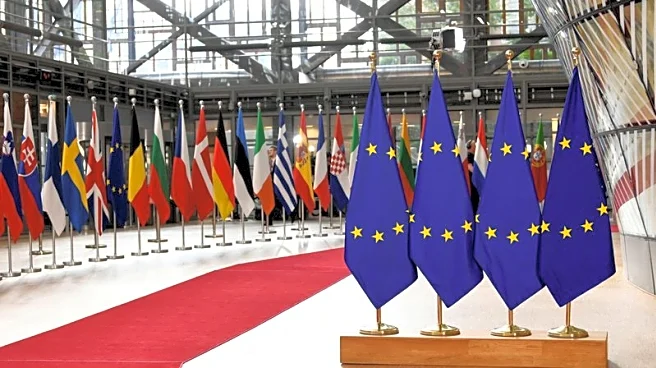What's Happening?
The United Nations climate talks in Brazil concluded with a limited agreement to provide more financial aid to countries most affected by climate change. The deal, however, lacks explicit plans to phase
out fossil fuels or enhance emissions-cutting strategies, which many nations had demanded. The Brazilian hosts promised to develop a roadmap for transitioning away from fossil fuels, but this will not have the same authority as a United Nations-approved plan. The agreement was reached after extended negotiations, with some countries expressing dissatisfaction over the absence of stronger commitments.
Why It's Important?
The agreement highlights ongoing challenges in global climate negotiations, particularly the difficulty in reaching consensus on fossil fuel reduction. The financial aid increase is significant for countries facing severe climate impacts, but the lack of a concrete fossil fuel plan may hinder efforts to limit global warming. This outcome reflects geopolitical tensions and varying national interests, impacting the ability to achieve comprehensive climate action. The deal's limitations may affect future negotiations and the global response to climate change.
What's Next?
Brazil, as the host, will continue discussions on fossil fuel transition plans, aiming to present a separate proposal. The next annual conference will be crucial for assessing progress and potentially strengthening commitments. Countries dissatisfied with the current deal may push for more robust measures in future talks, while others may focus on implementing the financial aid provisions. The ongoing dialogue will likely influence international climate policy and cooperation.









